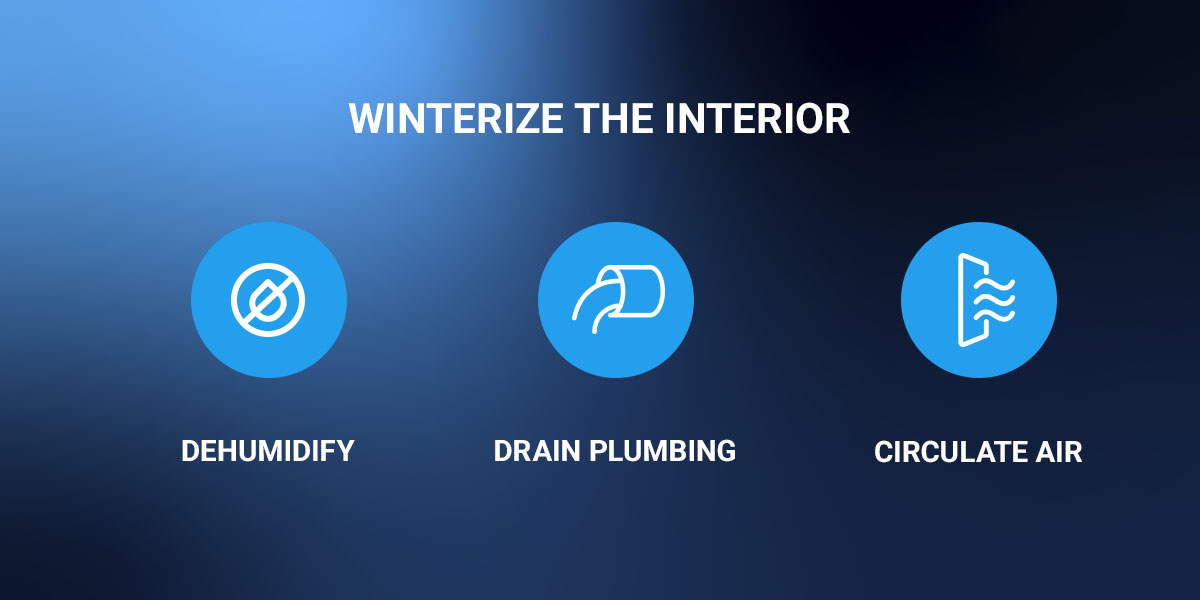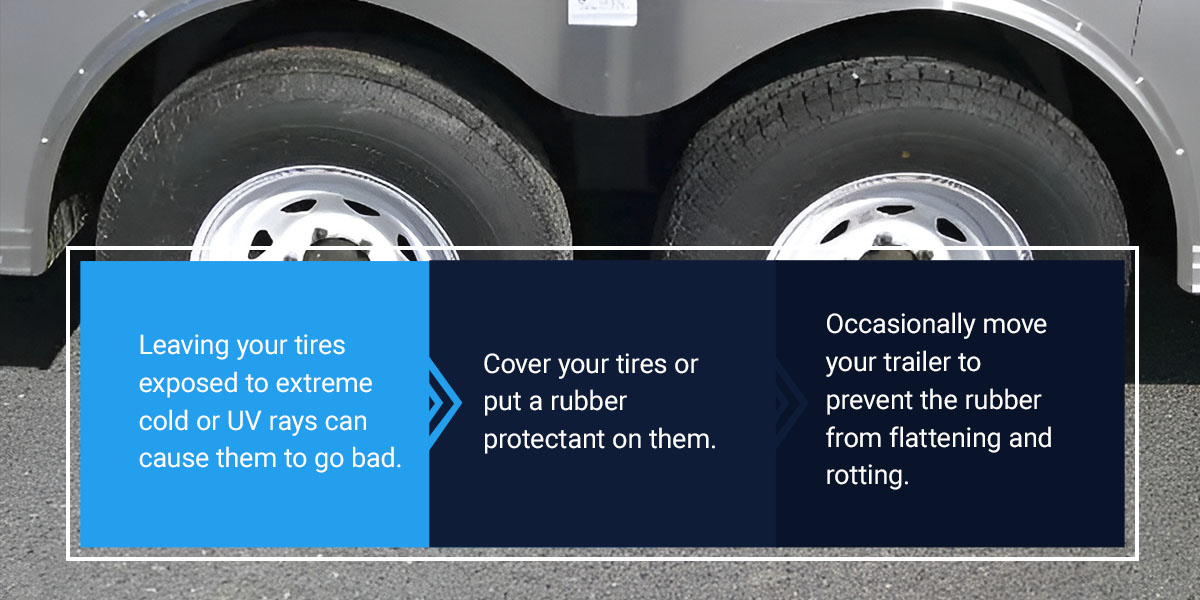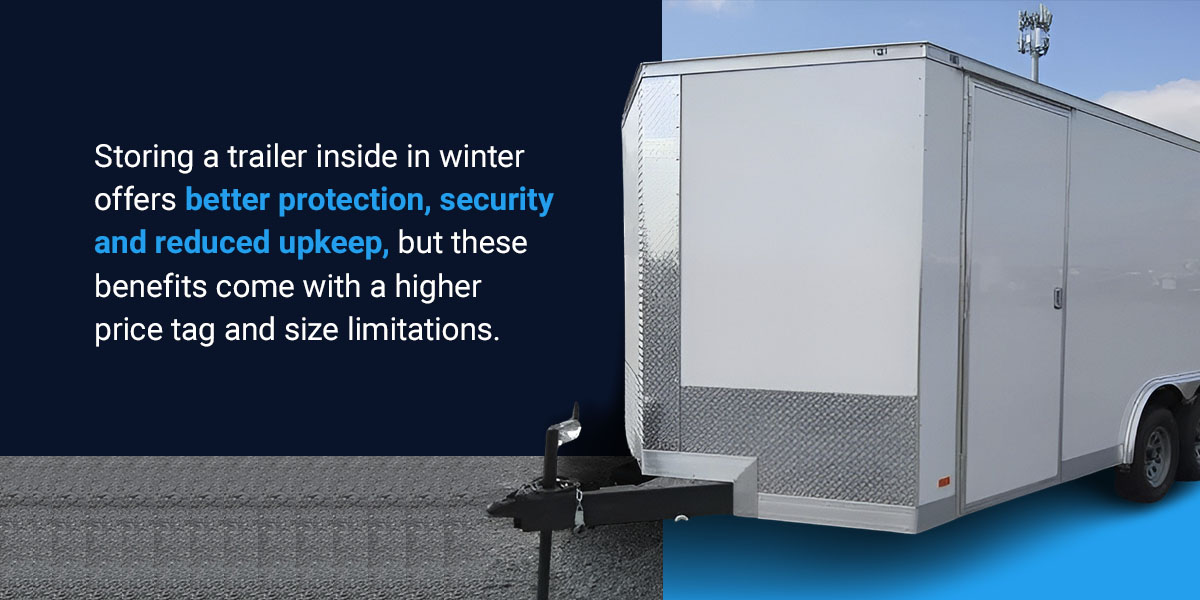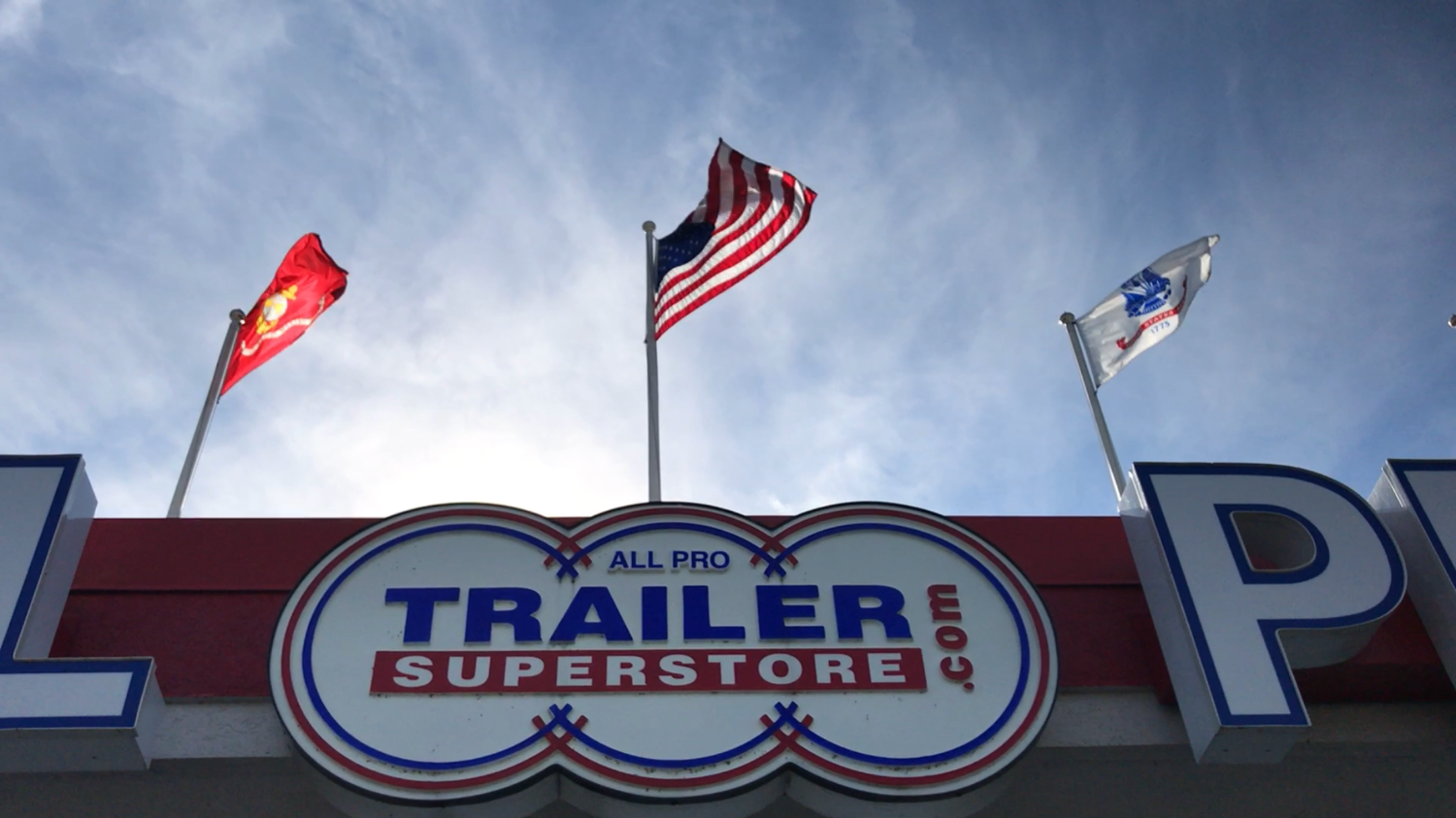Winter Trailer Storage Tips
Dec 13, 2016Last Updated on January 31, 2024 by Matthew Sholly
Last Updated on January 31, 2024 by allprotrailersuperstore
Trailers are an investment you want to last as long as possible. Improper storage is a leading factor that can decrease a trailer’s life span and durability. Winter weather takes its toll on everything, but you don’t want it to cause your trailer to develop rust or leaks. The best way to prevent this is by preparing your trailer for winter storage in the fall.
Following these winter trailer storage tips will help you maintain your trailer’s condition while storing it in cold weather.
Why Protect Your Trailer for Winter?
Preserving your trailer in winter is an essential aspect of its care and maintenance. The freezing temperatures and harsh elements cause damage and weathering. Sturdy trailers made for storing or transporting equipment during winter are still vulnerable to inclement weather and temperature drops. Protecting your trailer maintains its condition and durability.
- Exterior: Ice and snow can cause rusting, paint damage and deterioration of exterior surfaces.
- Interior: Cold temperatures can lead to cracked plumbing and degrade interior furnishings.
Some insurance policies are particular about trailer storage, especially over long periods. Check the fine print for any details you must comply with to align with the insurance stipulations.
How to Take Care of Your Trailer in the Winter
Take the following six steps to prepare your trailer for winter.
1. Clean It
Before you begin any detailing or prepping job, remove any debris, automobiles and anything else in your trailer. If you are winterizing your horse trailer, take out all bedding, mats, hay and feed. Once the interior is empty, wash down the walls and floors and clean between any cracks and crevices.
2. Winterize the Interior
Moisture control is one of the threats of winter. Here’s how to combat this issue.
- Dehumidify: Use moisture absorbers or dehumidifiers to keep the air dry inside the trailer.
- Drain plumbing: When water freezes, it can cause extensive damage. Don’t forget to empty the water heater, takes and any pipes.
- Circulate air: Leave your cabinet and refrigerator doors ajar to encourage air circulation and prevent mold and mildew buildup.
Pests also have a habit of moving in when the weather gets cold. Seal cracks or openings where a pest could enter and use natural repellents like peppermint oil to deter them. You should also remove any food or food debris.
3. Inspect It
Once you’ve cleaned the inside, check for rust, corrosion and potential leaks. Chipped paint and scratches can lead to rust if left untouched or untreated over the winter. Pay close attention to this with steel trailers. Exposed steel left to the elements is more prone to rusting and corroding, causing considerable damage to trailers as time goes on. You can remove rust spots with sandpaper or a wire brush and cover them with rust inhibitor paint. Be sure to check vulnerable areas like framework, axles and the undercarriage.
4. Prep It
Prepping your trailer involves caring for your tires, preparing the plumbing, greasing moving parts, removing the battery and choosing the right place. Leaving your tires exposed to extreme cold or UV rays can cause them to go bad. Cover your tires or put a rubber protectant on them. Occasionally move your trailer to prevent the rubber from flattening and rotting. You can set the trailer on blocks so the icy conditions don’t cause further damage.
If your trailer has a plumbing or septic system, prepare it so it doesn’t freeze. Frozen pipes can lead to cracks and other problems during the spring. Hire a professional to prepare your plumbing system if you don’t know how to do it yourself.
Greasing moving parts, such as hinges, axle bearings, suspension and hitch, prevents them from rusting or locking up due to disuse.
When batteries are idle for prolonged periods, they may develop excess deposits that cause shorts or failure. You can prolong the battery’s life by removing it and storing it safely elsewhere until spring arrives.
You need a space that can accommodate your trailer’s size. Knowing your trailer’s dimensions helps you choose an appropriately sized deck or structure to store it in.
5. Cover It
Keeping a trailer inside is the best way to protect it, but not everyone has the necessary interior storage space. When storing your trailer outside in winter, you must cover it to protect it from the elements and prevent damage and fading. The cover needs to cloak the trailer, but it does not need to be custom-fitted. It’s likely sufficient if the weatherproof cover contains the entire trailer.
If your trailer has a ramp, don’t forget to consider it when selecting a cover.
6. Choose Between Indoor vs. Outdoor Storage
You may question whether to store your trailer indoors or outdoors. Each option has pros and cons. Outdoor storage is more cost-effective and accessible, with additional space to accommodate a large or custom-made trailer.
Of course, there are several disadvantages, including the big one — your trailer will be subject to weather fluctuations. Snow, ice, rain and UV rays can lead to wear and tear, even with a waterproof tarp. Exposure can also increase your risk of theft or vandalism. To counteract all this, you’ll have to increase your checkups and maintenance, which can be costly.
Storing a trailer inside in winter offers better protection, security and reduced upkeep, but these benefits come with a higher price tag and size limitations.
To determine what is better for you, consider your budget and the typical winter weather where you live. In Pennsylvania, your trailer should stay indoors all winter if you can afford it.
Protect Your Investment With Help From All Pro Trailer
Finding a safe parking spot and detaching your trailer for the season can be tempting, but this can damage it. Properly storing your trailer over winter can prevent rust, rotted wood and damaged seals or tires. The money you spend on trailer maintenance and storage now will save you on future repairs. It also prolongs your trailer’s life by keeping it in good condition.
All Pro Trailer Superstore offers trailer inspections in Pennsylvania. A professional trailer inspection will help prepare your trailer for winter by checking:
- Tire pressure, tires and wheels
- Safety
- Brakes and brake magnets, lines, cylinders, lining and wiring
- Grease fittings
- Lug nuts
- Breakaway system
- Coupler
- Lights
- Hub or drum
If you have any questions about our trailer inspections, call us at 717-746-0954.





